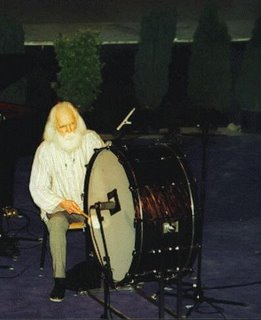Some notes on Faithful Interpretation
I’ve just finished AKMA’s latest book, Faithful Interpretation, and will make a few notes while it’s fresh. First, I came away with a renewed sense of the intelligence and integrity of the man and his writing. Reading him slowly is rewarded because he is saying things he’s thought about long and subtly.
Next, I sense there’s a “plot” to the book, never openly divulged, but underlying it nonetheless. It opens with the confrontation with Kings of Modern Biblical Interpretation, long known for their exegetical skill, and suggests there is something fundamentally amiss in their approach to reading. The problem is how they privilege “history” – itself a complex web of interpretive tradition and value – so far that all else, including Theology, is subordinated to it. That is to say, if we cannot adduce what we moderns agree is historical evidence in support of the Virgin Birth, or the Resurrection, well, then we might just have to let these events – and whatever other significance they may point to – take a back seat to our historiographic detailings.
Historians can tell us about what various theologians, political figures, texts, and images say about Christ, but the historiographic ascesis that can immeasurably help clarify interpretive questions also obliges us to remain mute on a question for which the evidence is inaccessible (or at the very least) fundamentally controverted. (43)
One treads carefully here because AKMA tends to not underscore where the floorboards are weak or entirely nonexistent. He’s more like David Hume, facing the really troubling stuff head on, but calmly and without the existential crisis mode of latter day academic theoreticians who keep anxiously interpreting for us the fact that there are no facts, only interpretations.
But there’s crisis nonetheless as the reader learns that not just history, but the very apparent solidity of the text itself turns out to lack the minimal requisite stability to provide an object of intellectual inquiry. With a nod to Stanley Fish, AKMA finds little there there other than what the interpreter, working from within one or another set of local interpretive rules and practices, brings to her/his task:
…a more useful approach [than Fish’s claim that no text exists] would be to concede the (possible) objective existence of the text while denying it any functional efficacy. (127)
Without the twin supports of historiography and an actual, shared text, the authority of the high priests of scriptural understanding doesn’t seem quite so well founded, or grounded.
At this point – when the primary modern mode of contextual analysis and the very notion of “the text” itself have been replaced with, basically, nothing – things begin to look pretty bleak.
The narrative takes a turn here not by invoking some simple interpretive scheme or other deus ex machina, but by adducing in serial fashion several ways in which this loss of terra firma can actually be a gain for faithful interpreters.
The first step is to understand that while we might never have the chance to agree on either the text or a privileged approach to it, we have the local practices of communities of readership that come with certain constraints helpful for working out viable readings. The second step is to see the possible value of a world of differing understandings – what AKMA calls “differential hermeneutics.” This is possible only if we let go of the idea that there is one sole universal meaning “in” the text which all proper readers are obligated to share. Not only do texts not contain meaning, but as already noted, they really can’t be said to have much of an objective existence at all.
The sacrifice of the container/content sense of text, and of the text as stable, identifiable body, is at the heart of the major plot turn in Faithful Interpretation. Faced with the abyss where was once the Guiding Light, the interpreter will receive help from the local community and from a re-vision of what it means to interpret scripture. Because the locus of meaning is no longer in the text, or in the interpretive scheme, but in something more immediate and fluid – the “signifying practices” to which communities of faithful readers will be prodded, spurred, impelled by tuning in to what manifests in their lives as a result of viewing said lives within the order of signs of which scripture, the Word, is one very important anterior sign. (It is important to note that AKMA is always speaking from and to a reading community of believers.)
That is to say, the role of the reader is what has changed. From an allegedly passive “mind” working to develop an accurate, placid picture of a stable meaning latent somewhere within a text, it becomes a more a mode of participatory action. Where? In the reader, of course, whose every moment in time is constituted by his/her manifestation of that Word in their voice, body language, ethical choices, art, music, inflection – their incarnation, in short, of the Word, which AKMA calls “constitutive repetition.” (122)
I.e., it’s safe to say that there are many, many features of written language that can be identified, logged, quantified, in a manner that most (one can’t say “all,” ever) people would find nothing to disagree with. We can count the “Q’s” in a poem and arrive at a total – and, pace AKMA’s pains to assure us that one never reads the same Q twice, there’s a literal identity that subtends the manifestations of that and every other member of the alphabet that cannot be elided by attending to differences such as whether the Q is in print, or handwritten, etc.
That’s a trivial example, but then that’s what the Trivium has always been: a set of mere tools crafted over centuries in multiple languages by gifted observers of human language – folks like Aristotle, Quintilian, Dionysus Thrax and a lot of other very subtle people from Cicero to Chomsky – that enable us to describe with some degree of accuracy certain properties of language: from sentence structure to syncope to tropes, figures, logical relations and syntactic aberration. It’s an enormous human inheritance that deserves acknowledgement. Whether and to what extent our competence to share rich descriptions of a text can serve as a basis for interpretive legitimacy is an eternally contested question. My only point is that there is reason to have faith in the utility of a distinction between description -- as per the Trivium -- and interpretation, which, as AKMA, I think, rightly argues in harmony with Nietzsche, is sheer Theology.











